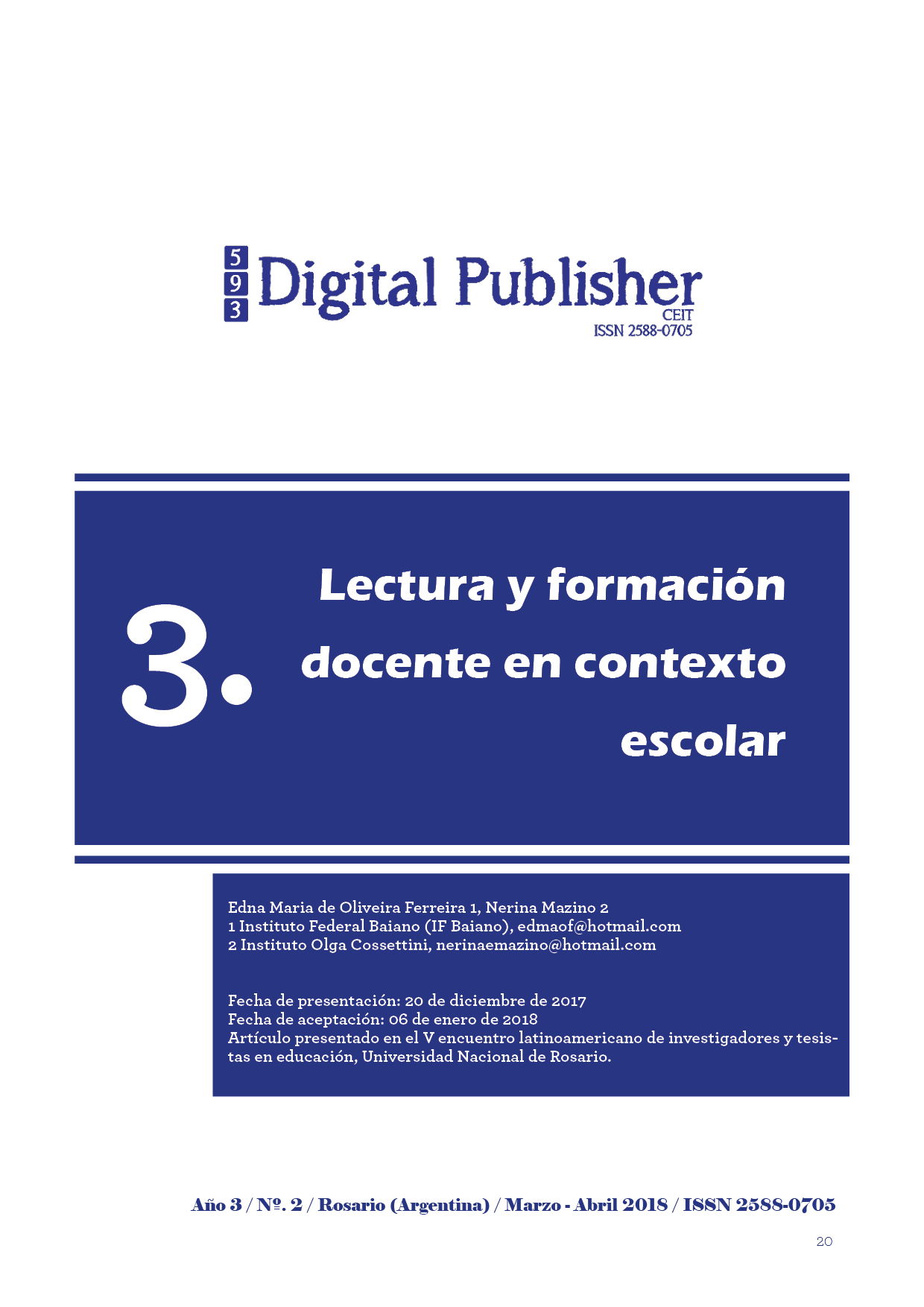Lectura y formación docente en contexto escolar
Main Article Content
Abstract
This article tries to reflect on the continuous education that happens inside the school space for the teachers in the moments of multidisciplinary planning transformed into pedagogical practice. The reading, didactic resource present in all the disciplines of the curriculum, was the motivation for the development of this didactic teaching project involving the following subjects: Portuguese language and writing I, chemistry, physics and writing Scientific, in early years/2017, in the professional high school, on the campus of the Instituto Federal de Senhor do Bonfim-Bahia-Brasil. Compared to high levels of disapproval in chemistry and physics at the school, the group of teachers has developed this project called ‘ is there an uncle Tungstenio in each one of us?’ that allowed access to a learning content multi and transverse more enjoyable as well as were offered conditions that foster the attitude of investigation before problems requiring a solution, In other words, it was more than just the transmission of knowledge. Then, the reading of the novel “Uncle Tungstenio: Memories of a chemical childhood” by Oliver Sacks supported this idea and the experience was evaluated positively by the professors and students involved in the project.
Downloads
Article Details
1. Derechos de autor
Las obras que se publican en 593 Digital Publisher CEIT están sujetas a los siguientes términos:
1.1. 593 Digital Publisher CEIT, conserva los derechos patrimoniales (copyright) de las obras publicadas, favorece y permite la reutilización de las mismas bajo la licencia Licencia Creative Commons 4.0 de Reconocimiento-NoComercial-CompartirIgual 4.0, por lo cual se pueden copiar, usar, difundir, transmitir y exponer públicamente, siempre que:
1.1.a. Se cite la autoría y fuente original de su publicación (revista, editorial, URL).
1.1.b. No se usen para fines comerciales u onerosos.
1.1.c. Se mencione la existencia y especificaciones de esta licencia de uso.
References
BRASIL. (2014). Ley Nº 13.005, de 25 de junio de 2014. Aprueba el Plan de educación nacional-PNE y otros asuntos. Gaceta oficial [de] la República Federativa del Brasil, Brasilia, 26 de junio de 2014.
BRASIL. (2001). MEC/CNE/CP no. 009, 08 de mayo de 2001. Directrices curriculares nacionales para la formación de maestros de educación básica, nivel superior, grado, graduación curso completo. Brasilia/DF.
GIROUX, h. & SIMON, R. (1995). Cultura Popular e Pedagogia Crítica: a vida cotidiana como base para o conhecimento curricular. In.: Moreira, A. F. B. & SILVA, T. T. da (Org.). Currículo, Cultura e Sociedade. São Paulo: Cortez. p. 93-194.
MANFREDI, M. S. (2002). Educación profesional en Brasil. São Paulo: Cortez.
MARCUSCHI, L. A. (2001). De discurso para la escritura: actividades de retextualização. São Paulo: Ática.
MÉSZÁROS, I. (2005). Educación más allá de la capital. 1930; traducción de Isa Tavares-SP, Bomtempo.
NERY, A. (2007). Modalidades organizativas do trabalho pedagógico: uma possibilidade. In: Ensino Fundamental de Nove Anos: orientações para a inclusão da criança de seis anos de idade. Brasília, MEC.
NEVES, L. M. W. (2015). La nueva pedagogía de la hegemonía: estrategias del capital para educar el consenso. In: La formación continua y sus implicaciones. CAD. CEDES, Campinas, v. 35, Nº 95, pp. 15-36, enero-abril.
NÓVOA, A. (org.).(2002). Los profesores y su formación. Portugal: Porto
SACKS, O. (2002). Tío tungsteno: Recuerdos de una niñez química. Traducción de Laura Teixeira Motta. São Paulo: Companhia das Letras.
WITTACIK, N. L. (2008). Educación profesional en Brasil: historia. E-Tech: Noticias de tecnología para la competitividad Industrial, Florianópolis, v. 1, n. 1, p. 77-86.
ZABALA, A. (1998). La práctica educativa: Cómo enseñar. Porto Alegre: New Haven.
BRASIL. (2004). Red nacional de formación continua de maestros de educación básica: orientaciones generales. 2004. disponible en http://www.planalto.gov.br/ccivil_03/_ato2011-2014/2014/lei/l13005.htm. Consultado el 29 de noviembre. 2017.

